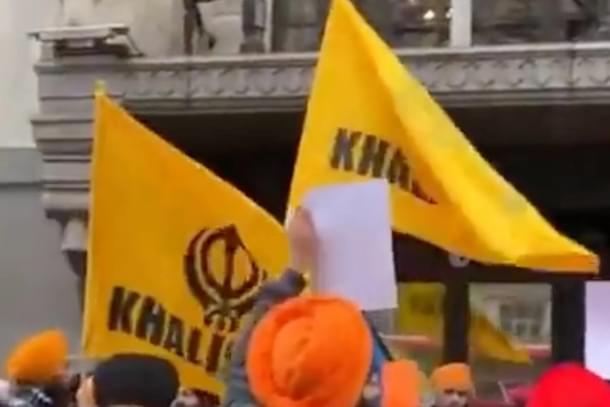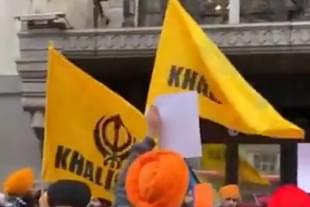World
UK Envoy Says Attack On Indian High Commission In London 'Absolutely Not Okay', Symptom Of Khalistani Extremism
Swarajya Staff
May 11, 2023, 03:47 PM | Updated 03:47 PM IST
Save & read from anywhere!
Bookmark stories for easy access on any device or the Swarajya app.


Asserting that attack by Khalistani extremists on Indian Embassy in London was "absolutely not okay", British Commissioner to India Alex Ellis has said that he would have been "equally angry" as Indian government and people were over the attack on India's mission in London.
Ellis, while speaking at a think-tank event on the UK's Strategic "Integrated Review Refresh," stated that the relationship between India and the Britain is "absolutely central" to the UK's Indo-Pacific plans and its future foreign policy.
He added that the two countries are "capable of dealing with disagreements", as over the issue of extremism. This marks the UK high commissioner's first public statement following the incident at Indian Embassy in London on 19 March this year
“I think there is no disagreement between [India and the U.K.] that what happened at the Indian High Commission was absolutely not okay,” Ellis said, reports The Hindu.
During his speech at the Ananta Centre in Delhi, Ellis expressed his belief that there was no disagreement between India and the United Kingdom regarding their condemnation of the protests that occurred at the Indian High Commission on 19 March.
The vandalism by Khalistani elements at Indian mission led to an uproar in India and a formal demarche from the Ministry of External Affairs.
Ellis noted that the incident was a symptom of an issue, specifically Khalistani extremism.
“It’s a symptom of an issue, which is Khalistani extremism. Now, we look at extremism not in relation to any one particular group of people. But overall, extremism is a risk in any country,” Ellis said.
He said the UK government's approach to tackle the extremism problem includes measures such as handling disinformation, radicalisation at religious institutions, and more.
Ellis also said that it was necessary to keep “eyes on the prize” of closer India-UK strategic ties, and to complete the bilateral Free Trade Agreement as soon as possible, before both countries move into their election cycles in 2024 and 2025.





